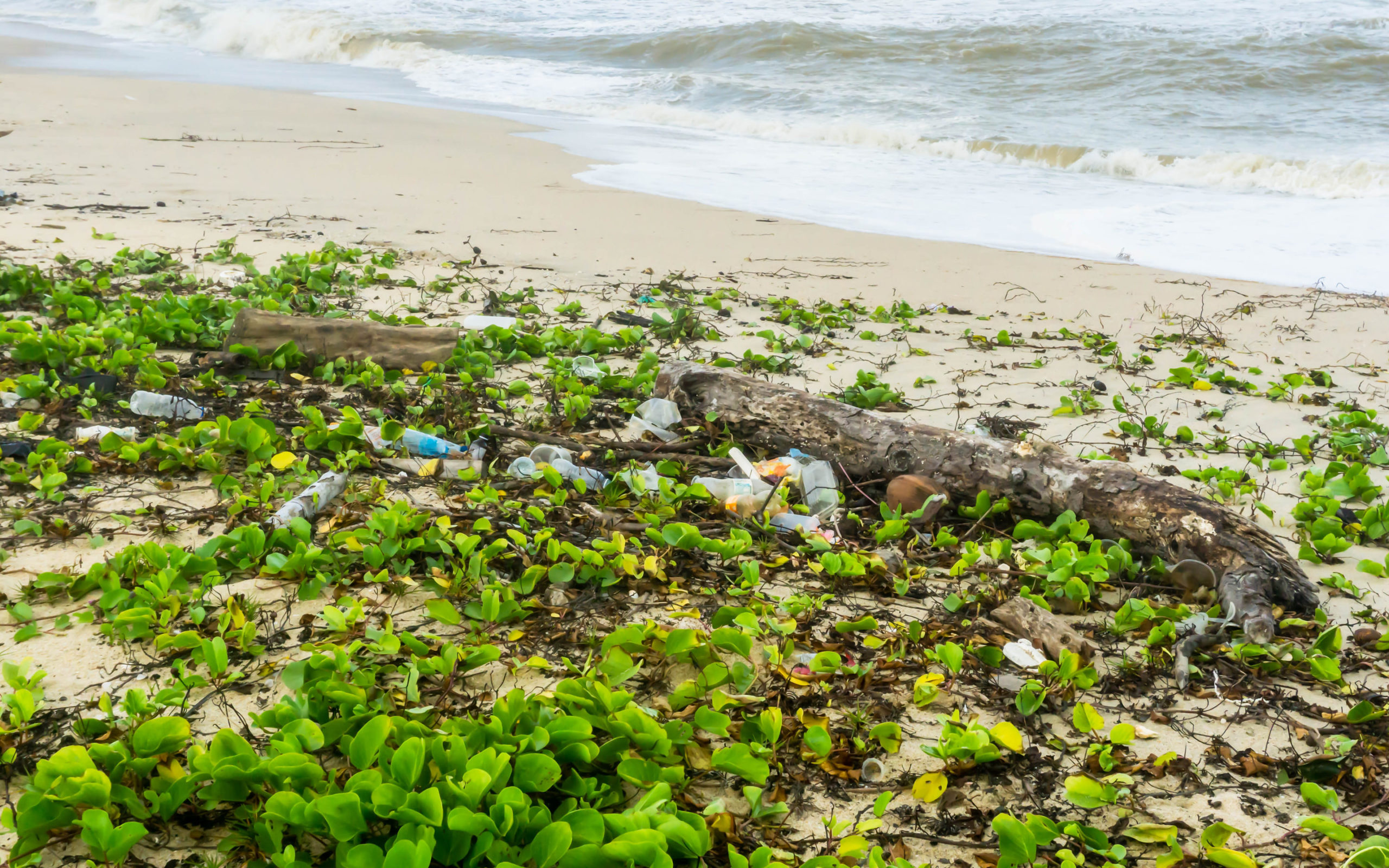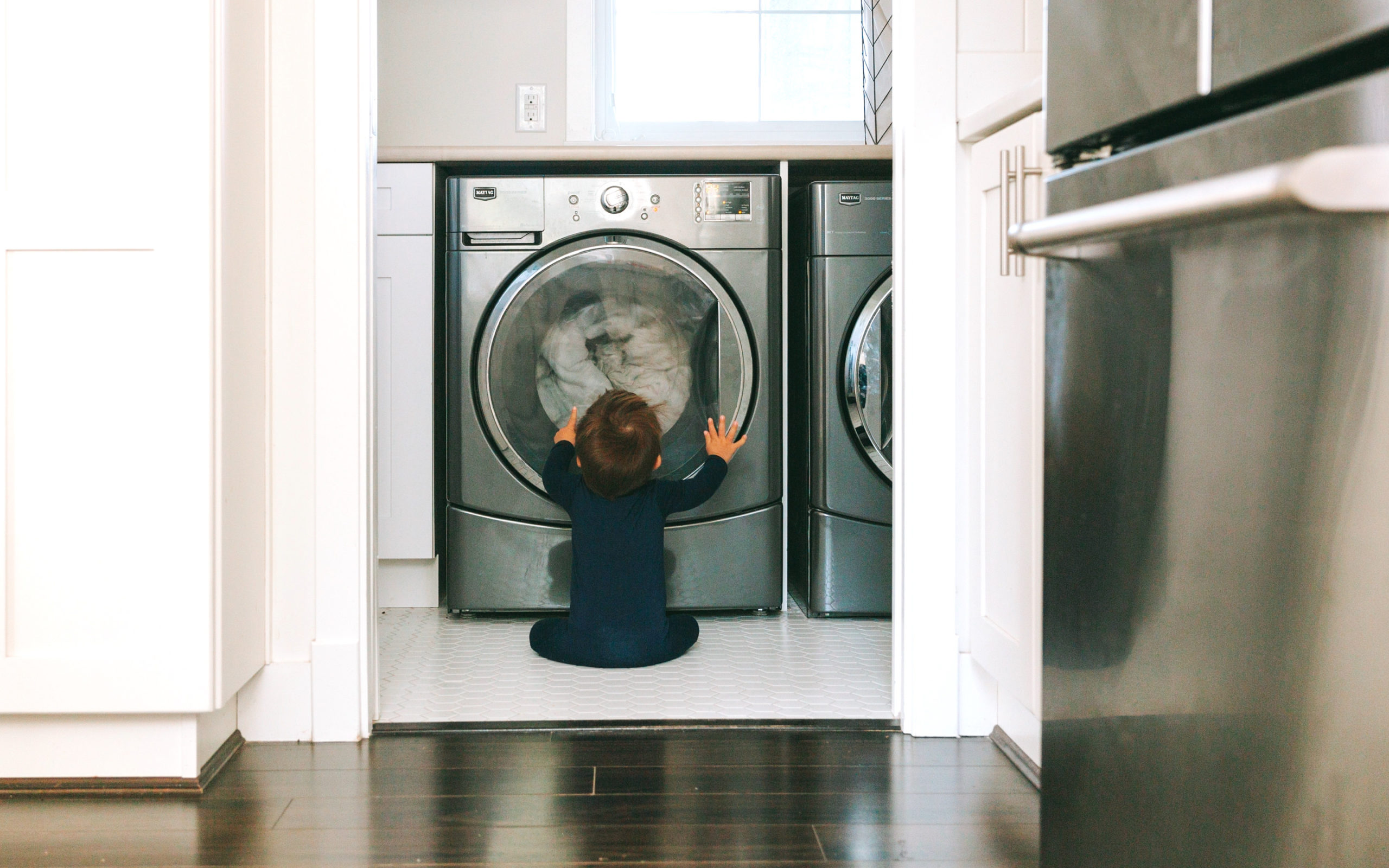What started as an ocean waste research project has evolved into a tiny device that removes microfibers from washing machine waste water. Meet Cora Ball, and the mind that brought it to life.
The founder of Cora Ball is Rachael Miller, an energetic and enthusiastic woman with a penchant for storytelling, and a fire for sustainability.
“Everyone’s seen clothes go threadbare, but I certainly never thought about where those threads would go.”
Rachael has an unwavering tenacity for one of the biggest environmental jobs the world has still left undone: the ocean cleanup.

The Microfiber Problem
The numbers are staggering:
- Just one fleece jacket sheds up to 250,000 microfibers PER wash1.
- Up to 40% of microfibers from wastewater ends up in our natural water supply1.
- Microfibers make up to 85% of shoreline debris around the world2.
- 67% of all species tested from fish markets in California has microfibers in them3.
Why microfibers end up in the water supply is somewhat of a mystery and might have something to do with how our wastewater is filtered and managed. Scientists are currently trying to focus on stopping the supply of microfibers to oceans and waterways.
The Minds Behind Microfiber Research: The Rozalia Project
The reality is that the microfiber pollution problem is still a relatively new one. Not many people know much about how these fibers wind up in oceans, or what their long term impact might be on our aquatic food supply.
Rachael Miller started her life as an entrepreneur, originally as an ocean debris fighter on a research vessel. It wasn’t until late 2013 that the world even knew something about microfiber pollution, but 10 years ago, Rachael and a small team of researchers began cleaning up the oceans and studying what they were finding.
The results were shocking.
Most of the debris they cleared from the oceans turned out to be microfibers — tiny bits of thread and plastic from all sorts of things, ranging from apparel and textiles to cosmetics and personal care products. When their findings pointed to how large the problem was, Rachael knew she and her team had to start trying to find a solution.
“This was a problem that screamed at us,” says Rachael.

So they began a study. Rachael and her team set off on a journey into the Adirondack mountains to begin collecting water samples from the Hudson river every three miles until they hit the ocean. They published a paper and quickly realized it was time to start a preventative solution.
The Rozalia Project continues to produce academic reports on the microfiber problem and provide the science needed to monitor and solve the microfiber ocean waste problem.
With the backing of National Geographic, Rachael’s team was able to collect air, soil, and water samples from the topographically diverse Hudson river, where they hope the unique cross-section of rural and urban development will provide them an understanding of just how pervasive the problem is.
Meet the Microfiber Washing Machine Filter
Cora Balls are plastic balls about the size of a fist comprised of recycled plastic stems and rings somewhat reminiscent of some form of sea life.
As Rachael and her team of scientists and ocean protectors analyzed the microplastics problem, they found they needed a filter that could pull these fibers from running water, without needing to be cleaned multiple times in a laundry cycle.
“We realized that coral did that and that by design, this thing would catch debris moving in flowing water. That’s why the Cora Ball looks like a sea creature. We used biomimicry to solve the problem,” says Rachael.
This odd coral-shaped ball is roughly the size of an apple, and depending on your clothing and washing machine, might need to be cleaned every few washes or so, depending on how much your clothing is shedding.
Finding the Right Supplier
Rachael spoke a lot about her frustrations with the manufacturing process, and why it’s so hard to make something like this in a sustainable way.
“It’s just not set up to make it easy. There are tons of hoops to jump through, and it is so, so expensive to do things right,” she says.
It took them a lot of ingenuity, but eventually, Rachael and her team at Cora Ball settled on a Vermont manufacturer for their Cora Ball components and an assembly plant an hour away. Each Cora Ball is made out of 100% recycled plastic designed to last through years of wear and tear in the wash. On the manufacturing side, the components for the balls are made with a zero-waste plastic injection molder, where even the scraps of plastic are recycled back into the supply chain. On the assembly side, another local manufacturer who uses the same facility has agreed to let the makers of Cora Ball use the excess space on their delivery trucks to transport the components between the manufacturing plant and the assembly line.
How to Reduce Microfiber Shedding
Besides buying a Cora Ball to throw in every load, Rachael says there are a few other things people can do to reduce the microfiber flowing into the planet’s waterways:
- Wash less. The fine fibers that pull from clothing in the wash get looser and looser over time the more wear and tear they see. You can help prevent that from happening by washing your clothes only when they’re truly dirty, and re-wearing things from time to time.
- Use cold water and liquid detergent to wash your clothes. According to the research done by the Rozalia Project, cold water and liquid detergent is gentler on clothes and can help reduce microfiber shedding. Try an almost zero-waste laundry detergent brand like GreenFills.
- Buy an agitator-free washing machine. Front-loaders and other machines without agitator columns cause far less microfiber shedding in your clothing, and Rachael says they make a big difference.

This Is a Problem We’re All On the Hook For
Rachael says that this issue grips her because it’s not something anyone can pretend they’re not contributing to.
“Everyone who wears and washes clothes is part of the problem, but we can all be part of the solution.” – Rachael Miller, Founder of Cora Ball
With an army of coral shaped balls at her disposal, she’s intent on educating the world on microfiber solution and using the funds from Cora Ball sales to develop more research into the problem.
You can help by supporting her cause with a purchase of a Cora Ball for your washing machine — head over to Cora Ball and use code AVOCADO5 to save 5% and eliminate your contribution to microfiber pollution today.
Did you know about our microfiber problem? Tell us how you’re going to help solve this issue on Facebook or Instagram, tag us @avocadomattress and @thecoraball!

Shop Pillows
The Essential Organic Pillow Collection
Gentle, breathable, non-toxic support.





